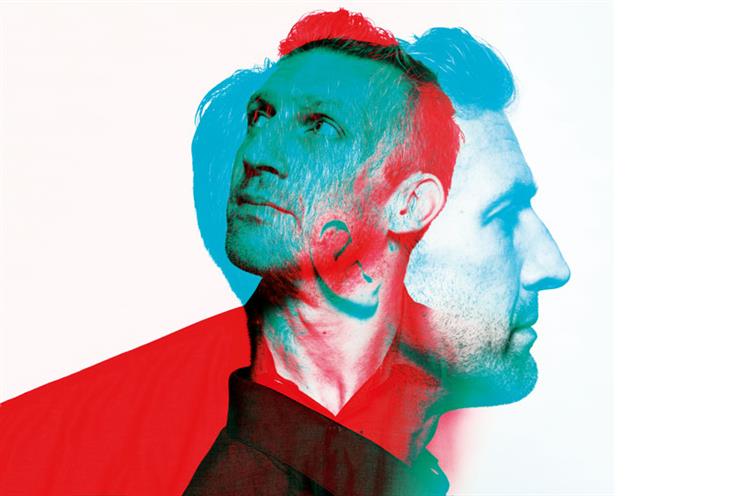
So now I’m the UK’s longest-serving top-10 media agency chief executive. By some margin. If some commentators are right and agency bosses are indeed like Premier League managers in our attrition rate, then I’m Arsène Wenger and everyone’s a Piers Morgan. #davisout.
My programme notes should write themselves: the role of agency leader has become intolerable, torn between the holding company demand for growth and client demands for more transparency, lower fees and higher service. You and your best people spend your time pitching for low-margin global business while incumbent clients slip out the door with barely a glance back. It’s as if they don’t care about your prestigious industry positions and high number of Twitter followers.
Clients trust what the pitch consultants are telling them more than they trust you, even though the consultants’ livelihoods depend on destabilising trust in media agencies. Diversity is a problem. Staff retention is a problem. Even digital is a problem, and you’ve spent the past five years persuading clients to pour money into sites that turn out to be funding jihadists – so that’s disappointing for everyone. Marketers don’t even want to talk about content any more.
'Growth may come organically rather than through the zero-sum game of new business’
Could it get any worse? Yes, actually, because up next there’s Brexit, Accenture and taking media in-house. So that’s that, then. Hang up the tracksuit and go and get a job in ad tech. Or at a consultancy. Or in programme finance.
Except… I still really like my job. Whisper it, but it’s way better than working for a living! I like solving problems for brands, which I get to do because I still spend most of my day executing for them. And that’s all marketers have ever wanted their media agencies to do for them. Brilliantly. I like working with smart, curious people who share the enjoyment of delighting clients by figuring stuff out for them.
Clearly the model is shifting. Brands are coming through the front door offered by the holding companies and demanding breadth of capability. But execution is still delivered by the agency brands that are held accountable by their clients, and the expertise we offer and tools we have developed and invested in over the years are now on the cusp of bringing transformation into the media agency proposition.
Unconvincing old effectiveness modelling, or the self-serving metrics of new media, are giving way to real-time measurement using device IDs that allow us to track consumer actions from online to offline, and finally introduces the opportunity for proper outcome-based marketing. Client and agency both know what good looks like over the short and long term, and commit to working in true partnership to deliver it. This will radically change the nature of remuneration at media agencies, addressing transparency issues and providing clarity of purpose for all parties, the key to re-establishing trust; as well as pulling creative and media back together as multivariate testing of messaging becomes baked into the process.
With a return to client-centricity, the trading discussion will have to move away from share to one that rewards for additional volume, even on TV, as advertisers insist on buying more of the inventory that is shown to be delivering for them. Group trading deals are almost certainly unsustainable in the medium term.
With addressable media becoming a reality across all TV channels plus radio, digital out-of-home and digital, mass personalisation is finally here. Now we can properly unlock the real value of programmatic buying, which is to allow custom audience segments to be bought from a single point across channels, at scale.
'There is still a huge amount of work to do with ethnic, LGBT and gender diversity, but I would also like to see a focus on economic diversity'
It’s the performance teams within media agencies that are currently the experts in outcomes, and I would expect to see other media shops following Blue 449’s decision to elevate our performance specialists to operating at the start of the planning process.
And these new skill requirements are already helping drive diversity within media agencies, as we look further afield to buy-in the new capabilities. There is still a huge amount of work to do with ethnic, LGBT and gender diversity, but I would also like to see a focus on economic diversity – we are at risk of becoming a passion industry for rich kids, with a graduate entry point open only to those who have parental support to clear university debts and help with accommodation. Apprenticeship schemes, travel and living-cost supplements, maybe even bursaries, should all be on the table.
Holding companies seem to be recognising that growth going forward may come organically rather than through the zero-sum game of new business. Doing the best work for brands with outcomes as the focus will involve selling more data and tech services developed centrally, and executed through agency brands – a more sustainable model for growth.
The industry has definitely reached a watershed moment. But I’m going to keep the tracksuit on for a year or two longer, or until I lose the dressing room. Media agencies still have a decent cup run left in them, at least.
Simon Davis is the chief executive of Blue 449.

